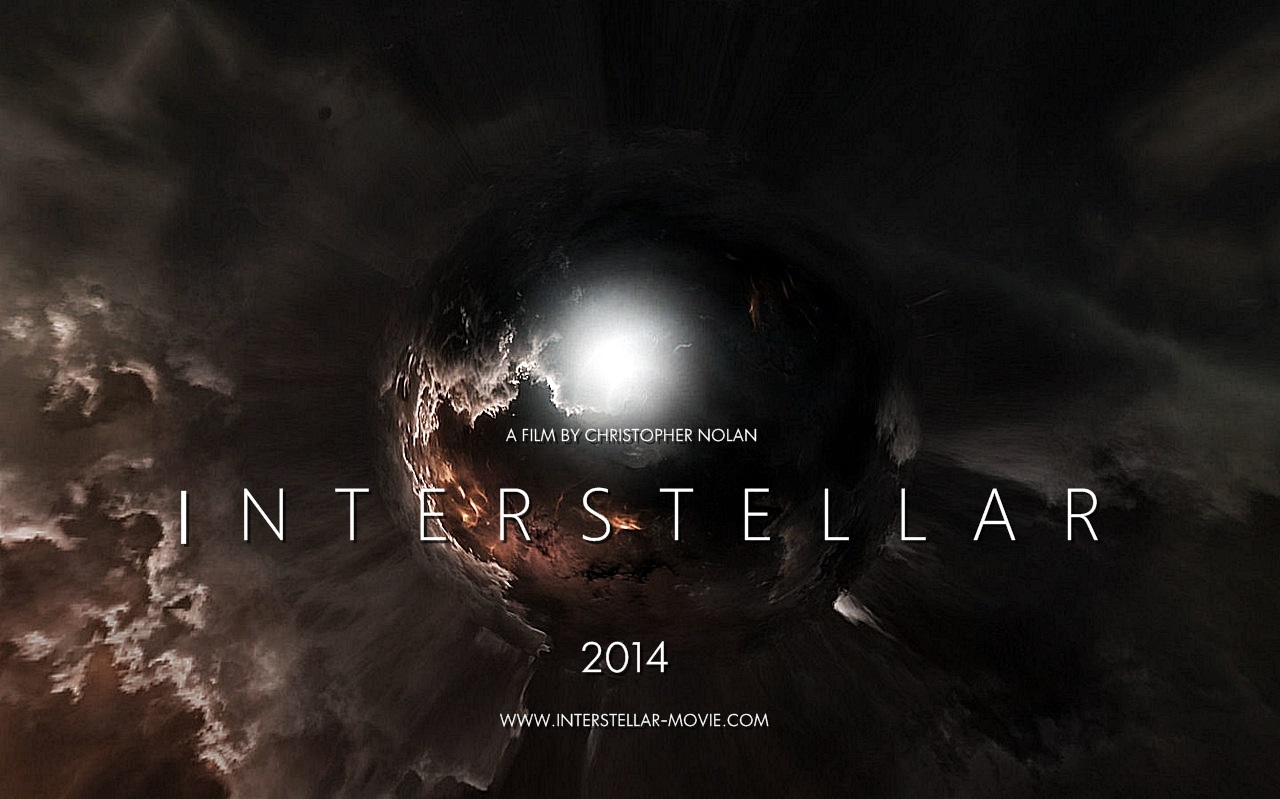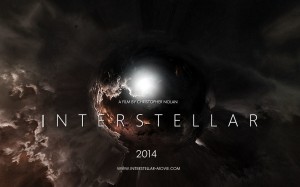
“Interstellar” – What does it mean?
 First and foremost, there are nothing but spoilers on this page. In fact, if you haven’t seen the movie then this will mostly be incomprehensible babble, as I’m talking directly to people who have seen it rather than explain in meticulous detail everything I say. So, SPOILER WARNING. I have a huge distaste for spoilers, and for those that even reveal the tiniest info on something I’m excited about. So, this paragraph should provide ample buffer between the spoiler warning and the actual spoilers that will soon follow. Thank you.
First and foremost, there are nothing but spoilers on this page. In fact, if you haven’t seen the movie then this will mostly be incomprehensible babble, as I’m talking directly to people who have seen it rather than explain in meticulous detail everything I say. So, SPOILER WARNING. I have a huge distaste for spoilers, and for those that even reveal the tiniest info on something I’m excited about. So, this paragraph should provide ample buffer between the spoiler warning and the actual spoilers that will soon follow. Thank you.

It’s been interesting reading reviews and listening to podcasts regarding “Interstellar”. Largely because I have yet to read one that I feel accurately sums up what the film is actually about. Maybe I’ve got it all wrong and I don’t know, but it’s a little irritating to see journalists and film lovers immediately push the “Christopher Nolan is a hack” button rather than sit back and contemplate what’s before them and assume the best about him and his work. I’m not saying he is flawless, nor is “Interstellar”, but the flaws I found weren’t of the variety that everyone keeps drowning in.
I’ll begin by saying I usually watch a film and let the film set its own boundaries and logic. If you can’t do this then I honestly don’t see how you can ever enjoy any movie at all. It’s crucial for the suspension of disbelief and to allow a storyteller room to create magic. As long as the storyteller doesn’t violate their own logic, I’m usually pleased as punch in that regard. And Christopher Nolan is usually a bit of a clock when it comes to storytelling, very neat and precise. (Watch “The Prestige” or “Inception” and tell me otherwise, just don’t bring up “The Dark Knight Rises”, that’s a mess.)
My first viewing of the movie was absolutely thrilling. I saw it in IMAX, 70mm film projection, and it was glorious. The only better film experience I’ve had to date was “Jurassic Park” as a kid (in 3rd place of favorite movie theater experiences was “War of the Worlds”, then “Gravity” 3D IMAX, then “Avatar” 3D IMAX, fyi). This is by far the most emotional movie Nolan has created to date, and I loved it. Walking out of it, while I was blown away, I was also struggling with the paradox. I understood that some evolved version of future humanity had reached back to save us (and by extension, themselves), but the problem is that in order for there to even be a future humanity it first needs to survive, thus the paradox.
Then I watched it again.
The second time I watched it the music stood out, but not just in an experiential way this time. The music is telling us what this film is. The organ is a featured instrument in the score (brilliantly crafted by Hans Zimmer of course), but again it’s not just an instrument, the organ invokes a church connotation, and it’s a core part of informing us what this movie is, and what it is is a religious experience. It’s a commentary on the very nature of god. In this world, man evolves to essentially become god, and god is eternal, not bound by past or future since he exists outside of time itself, from our perspective he always was and is. This ties in the Murphy’s Law motif, “if it can happen it will”, which is to say that man can evolve beyond the 4th dimension, and so he will, and therefore effectively becomes “god”.
Now, this is a different type of god than any biblical version, because this god didn’t create the universe, and write the bible, etc, etc. Instead, the film seems divided into the dichotomy of evolution’s mankind: what we did in order to survive/evolve to get this far VS what we are capable of that can catapult us into something greater, or more simply put the “evil” and the “good”. Coop and Brand discuss early on that there is no evil in nature per se, it’s simply formidable, so we’re redefining “evil” beyond a purely religious context and reaching for something less absolute.
On both sides of this “good/evil” fence lay everyone, some more heavily than others. Dr. Mann is clearly the argument for our “evil/evolution”, where he makes the case for man’s relentless fight for survival, by any means necessary. Whereas Brand makes the case for love, which has fewer immediate practical applications outside of what Coop describes (social order and such), but transcends everything as we know it, reaching beyond anything in our power or understanding.
Mann’s worldview helps him survive his certain death on his frozen wasteland (a symbolism of his worldview, a tundra that’s produced everything it’s going to produce), until his myopia –effectively representing mankind– catches up to him later on. While Brand’s brand of “love” humanity ultimately means she is in charge of the future of mankind when she sets up on the final planet. And consider what this new society will look like: she’ll raise 10 people, who will presumably not have children of their own but rather act as surrogates for the other embryos. Humanity will rest entirely on each other, and the mindset will be entirely forward thinking, considering only each other and the future. This is transcendent love, a love that will evolve into something greater than Mann’s survivalist mentality could ever become. (We can also see within their very names that “Mann” represents mankind as it’s been known, while “Brand” will be able to put her branding on what humanity will become, even her first name “Amelia” potentially representing the pioneering pilot.) In fact, there’s a very clear moment of dialog between Mann & Brand where Mann declares humanity is incapable of empathizing with people beyond their immediate friends/family, and Brand calls this “a monstrous lie”.
So we have a very clear period on what we were (Mann’s death), and a new chapter on what we will become (Brand’s survival), because according to Newton’s Third Law “To move forward we have to leave something behind”.
Perhaps the most obvious declaration of this good/evil theme is the inclusion of “The Stand” on the bookshelf. I may have missed other books, but after seeing “Interstellar” several times I can only recall seeing “The Stand”, “Amistad” and an untitled Sir Arthur Conan Doyle novel. For those who don’t know, “The Stand” is a Stephen King novel where a virus wipes out most of mankind and then a fight between good and evil ensues. I think “Amistad” is a nod to say that we are seeking freedom. I suspect the Doyle inclusion is a hint that all the clues are there for the thoughtful, a la Sherlock Holmes.
So, we have this contemplation between the good of humanity versus the evil of us. I think the point being made is that love ultimately advances us beyond ourselves as we know it, unifying us, and allowing us to reach out to save us from ourselves.
Now, this isn’t to say that there aren’t other themes and topics in discussion. The most blatant one being our nation today and how we view space, which is summed up early on with the drone that Coop captures (and even the name “Coop” conjures an image of a trapped bird meant for flight) and little Murph asks why Coop needs to capture it and tear it apart when it isn’t bothering anyone up there, and Coop responds that it needs to adapt and become useful in a practical sense. Even our hero is unwittingly in the mindset that he himself despises. Coop representing our collective conscience as it shifts and evolves.
Another theme is that of death. Some may say that the final act is in fact nonexistent (how very “Inception”) and that it’s dreamt up by Coop. Mann essentially says that everyone sees their children before they die, and the argument is that naturally right as Coop dies –whether on Mann’s planet or in the black hole– he creates the scenario that needs to happen that allows him to do so, and he magically saves the world to do it. If that’s your cup of tea then drink up, but I love that it’s even a possibility up for discussion. That’s great filmmaking. However, I find it more important that Mann at once belittles humanity’s inability to see past its own myopia while asking to not be judged for what he’s done, to paraphrase: “Don’t judge me, you don’t know what it took to survive.” Naturally he reaches his demise after uttering the final words “There is a moment–“, and mankind’s moment ends in a selfish and reckless way as he attempts to enter the ship, because he and his mentality are incapable of entering where Brand is going.
Another variation of my “god analysis” is that perhaps in a parallel timeline/dimension a different version of humanity doesn’t screw up the planet and suffer our consequences and therefore evolve to become god-like and out of their love they reach over to us to help. That works for me, too. However, I find it more precise and in line of the usage of Murphy’s Law that we are very much the ones who evolve to save ourselves. Particularly when listening to the music, as I suspect if I watched with just the music in mind that strings may signify our past, and the organ signifying important moments about our future.
It’s also interesting to see this as a response or dialog with “2001: A Space Odyssey”, ruminate on that on your own.
The problems that most reviewers seem to have aren’t really problems as far as I can tell. To me, the few problems I have issue with largely deal with Miller’s planet. For one, why the hell did they start there? The logic was that it would take months and fuel to go to the next planet, yet it doesn’t bother them that they’re going to lose YEARS and tons of fuel fighting the increased gravity of Miller’s world? Next, once they realize the time slippage of Miller’s planet why doesn’t it occur to them that Miller has barely even arrived there and would actually not have any useful data? Are they in such a rush that they no longer thoroughly talk through these things?
Those are a bit nitpicky and ultimately don’t really bother me all that much, ya gotta have a movie after all. What does bother me are all the writers who give no benefit to the filmmaker. When they watch Kubrick’s 2001 are they yelling about how crazy it is that a giant baby is floating in space and how that could never happen? No, I assume they look a bit deeper. Nolan has created a masterpiece, he’s proven to be no slouch, and even if everything I wrote above is deemed hogwash I think he merits a little further consideration than crying foul by people who never bare their creative souls and instead partake in self-congratulating pop-critiques. It’s always fun to piss on someone else’s work, isn’t it?
